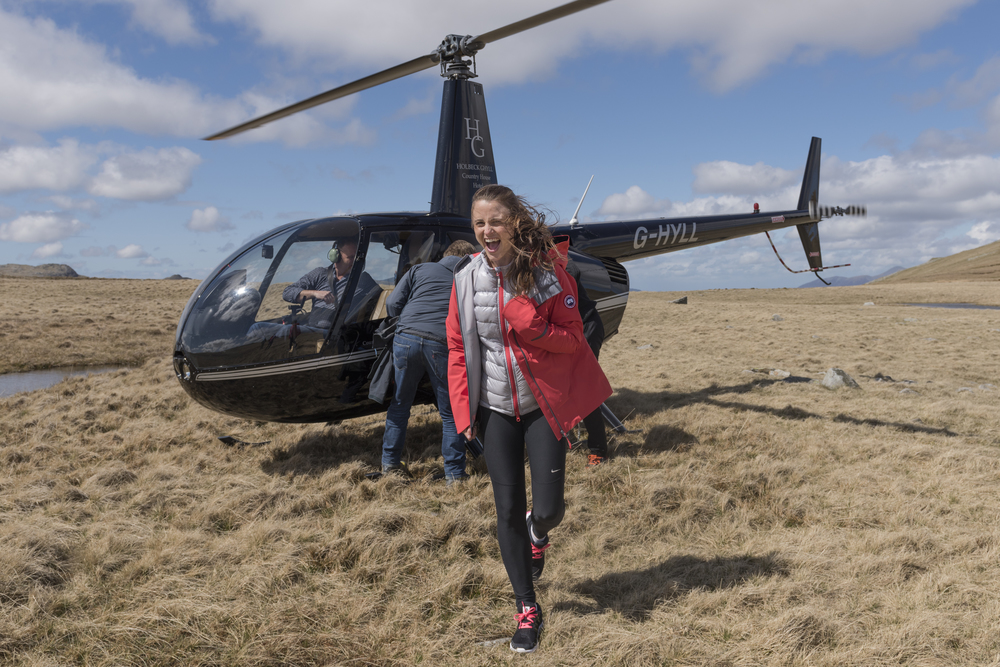
I’m in the Arctic Circle, in a little town called Kirkenes in north eastern Norway just 7km west from the Russian border. It’s just about as far north as you can go. Kirkenes sits north of Finland, and not to the west of Finland like the rest of Norway. Because of this, travelling directly west from Kirkenes actually changes the time zone forward instead of backward, as it usually does. Travelling directly east from Kirkenes (into Russia) changes the time zone forward by an hour in summer, but by two in winter. Kirkenes is located just east of the 30th meridian east. As a result it is further east than Istanbul, which marks one of the European borders with Asia.
Perhaps surprising for some, there’s no snow, no ice, the temperature is a fresh 11 degrees and the sun shines 24 hours a day with no darkness. There’s a salty smell in the air. Kirkenes developed due to the iron mines and as a deep sea finishing port due to its position on the Barents Sea.
I’m here as Kirkenes is the starting point for my 4,500 mile ‘Bringing Down the Iron Curtain’ expedition. I’ll be travelling through the 16 countries affected by the Iron Curtain by human power alone, starting with walking the length of Finland, a distance just under 1,000 miles. I expect the walk to take me 53 days, during which myself and my Land Rover support driver will be camping out. I’ll begin the walk in Nuorgam, the most northerly point in Finland and Europe and will finish at the city hall in Helsinki.
Before the war, the local population of Russians, Swedes, Norwegians and Finns lived peacefully with many working together in the iron mine. Kirkenes was occupied by the Germans in 1941 and they held approximately 7,000 Soviet soldiers as prisoners of war here who built the airport that we flew into.
During the German occupation of Norway, Kirkenes was the second most bombed place in Europe after Valetta, Malta. Bombs rained down on this small town more than 300 times after the Germans began using it as a base. The town was completely destroyed. This may seem strange being a very small town (only just under a square mile in size) with a population of only 3,498 at the time. Kirkenes was of huge strategic importance to Germany and one of the main reasons they invaded Norway. They desperately wanted to capture Murmansk in Russia, under 140 miles away, to cut the Russian supply chain and halt the Anglo-American Artic convoys.
The iron mine that provided employment pre-war turned into a shelter during the war that can be visited today. Back then there was no electricity, no water, no toilets and no way of creating warmth. No fires were allowed as there was only one air hole. The temperature of the mine is a constant cold 5 degrees year round with water streaming through the rocks. Even today with light, blankets and only a brief half an hour tour of the mine it is inhospitable.
Over 1,000 people, young and old with their live stock lived for months in this cramped, dirty, underground make shift shelter. 11 children were even born here. I was told by our guide whose grandmother lived down here that every woman, even those in their seventh decade of life told the officers at the door that they were pregnant to get the best spot in the mine shelter. The best spot meant that you were not placed near the toilet bucket or under a steady drip of water seeping through the roof of the mine.
Kirkenes was liberated by the Russian army in 1944. Outside, a large memorial of a Russian soldier sits 10 meters directly above the main cavern of the iron mine shelter. Originally there was a Nazi eagle being crushed beneath his foot. Our guide told us this was removed in the 1960s and replaced with a rock so as not to offend Germans doing business with the mine.
Today, many locals still work in other iron mines around the town. Norwegians cross the border to Russia to do their food shopping as it’s an eighth of the cost and the vegetables are all organic. Civilians who live within 30 miles of the borders don’t even need their passports to cross. I’m told the locals only build fires outdoors on rocks or where one has already been one burnt due to the ground being littered with ammunition and the danger of causing an explosion. Our Norwegian guide has many Russian friends and her only complaint about them is that when they invite her round for dinner they insist she clears her plate of their huge portions.
Tonight is our first night camping out. We’ve found a scenic spot by the river with king crab shells piled up on the shore and enormous tankers lurking in the distance. I doubt I’ll get much sleep, I’ve forgotten to buy an eye mask and it won’t get dark tonight.
